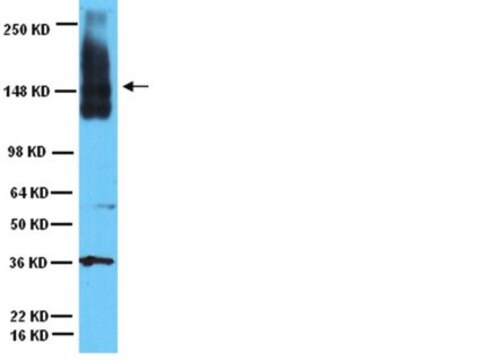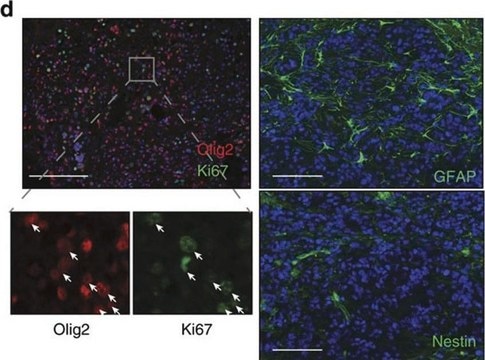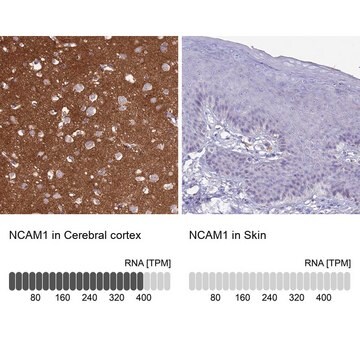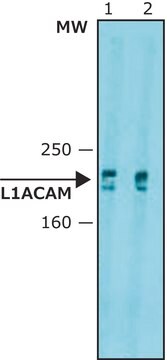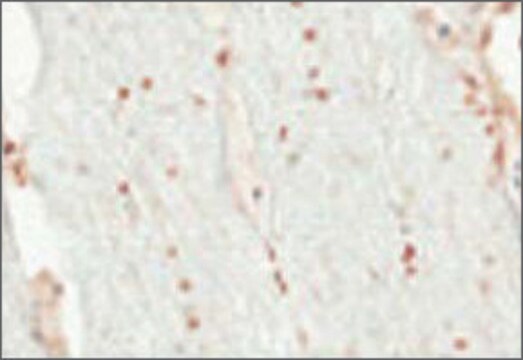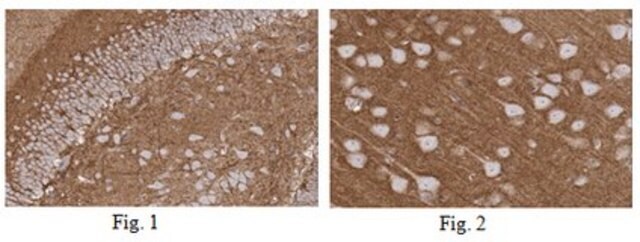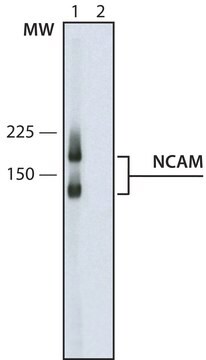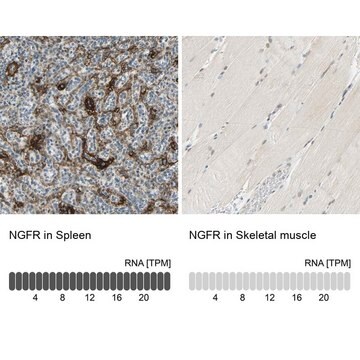MAB5272
Anti-Neural Cell Adhesion Molecule L1 Antibody, clone 324
clone 324, Chemicon®, from rat
Synonym(s):
CD171, N-CAM L1
About This Item
Recommended Products
biological source
rat
Quality Level
antibody form
purified antibody
antibody product type
primary antibodies
clone
324, monoclonal
species reactivity
mouse, rat
manufacturer/tradename
Chemicon®
technique(s)
immunocytochemistry: suitable
immunohistochemistry: suitable
western blot: suitable
isotype
IgG
NCBI accession no.
UniProt accession no.
shipped in
wet ice
target post-translational modification
unmodified
Gene Information
human ... L1CAM(3897) , VCAM1(7412)
General description
Specificity
Immunogen
Application
20 μg/mL was used on a previous lot.
Immunocytochemistry:
5-10 μg/mL was used on a previous lot. Cells must be fixed with methanol for 10 minutes at -20°C in the middle log phase.
Immunohistochemistry: Clone 324 is sensitive to fixation. Fresh frozen, acetone or -20C methanol fixed tissues are recommended. Traditional 4% PFA typically does not work well. Other fixatives have not been tested.
Optimal working dilutions must be determined by end user.
Target description
Physical form
Other Notes
Legal Information
Not finding the right product?
Try our Product Selector Tool.
Storage Class Code
10 - Combustible liquids
WGK
WGK 2
Certificates of Analysis (COA)
Search for Certificates of Analysis (COA) by entering the products Lot/Batch Number. Lot and Batch Numbers can be found on a product’s label following the words ‘Lot’ or ‘Batch’.
Already Own This Product?
Find documentation for the products that you have recently purchased in the Document Library.
Our team of scientists has experience in all areas of research including Life Science, Material Science, Chemical Synthesis, Chromatography, Analytical and many others.
Contact Technical Service